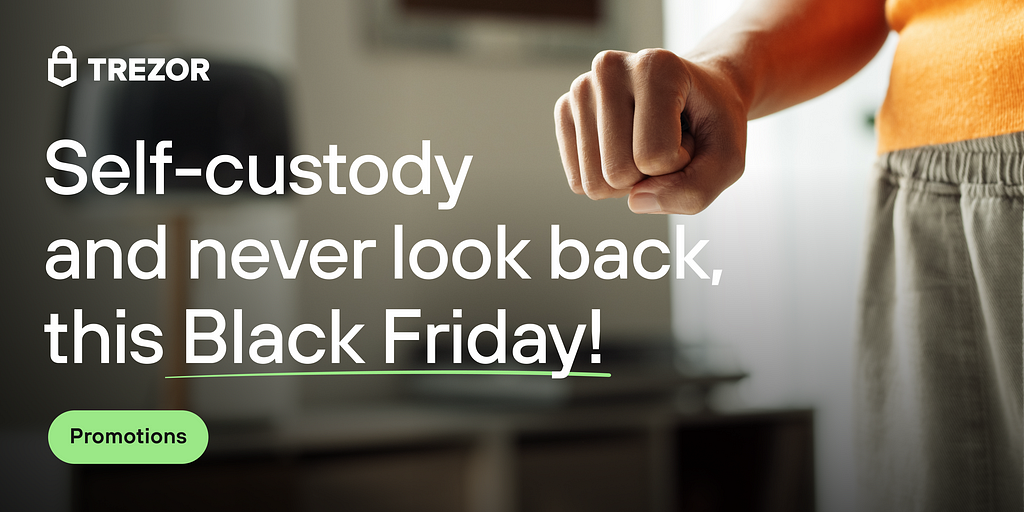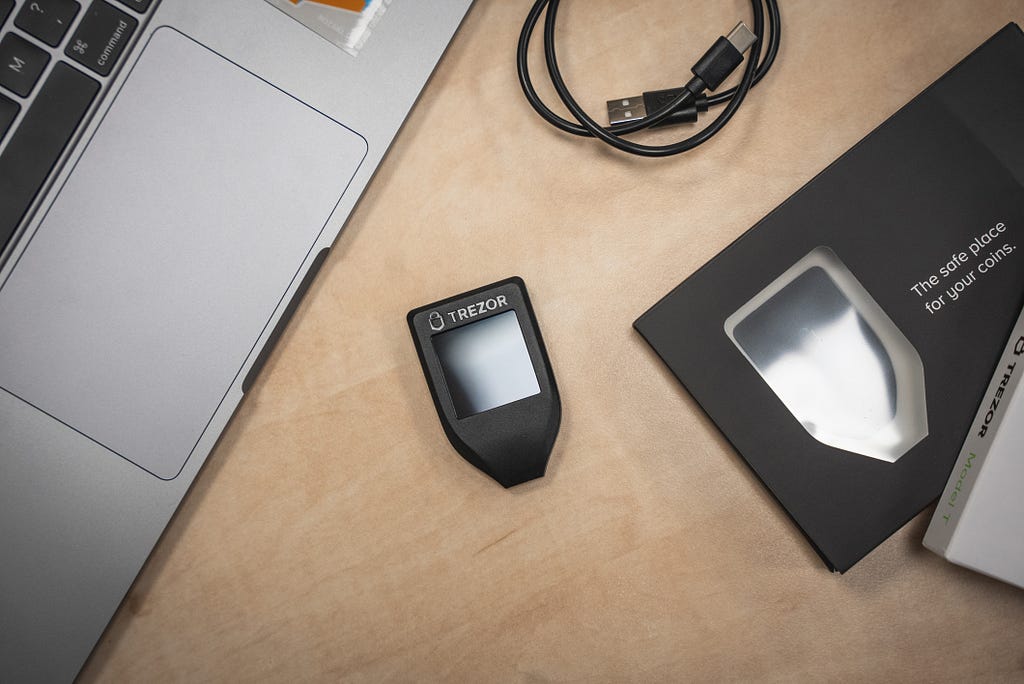Latest news about Bitcoin and all cryptocurrencies. Your daily crypto news habit.
Move over to the safer side this Black Friday: Join the 2% of crypto holders who truly own their coins!

Key takeaways
- Only 2% of the estimated 420M crypto users embrace self-custody and truly own their assets.
- Manage your private keys to protect your digital assets from potential security breaches and failures of exchanges.
- Trezor is the leading provider of hardware wallets, making self-custody easy and accessible for everyone.
With November upon us, many are bracing for the onslaught of deals that come with Black Friday, Cyber Monday, and all the shopping frenzy in between. We’re certainly not here to dampen the spirits. Yet, for those in the space of digital assets, this month also marks a year since the FTX debacle.
In the whirlwind of Black Friday bargains, prioritizing a deal around crypto security might not be top of your list. But consider this — why not seize the opportunity to reinforce your crypto’s safety at a discounted rate?
Remember, owning crypto isn’t just about accumulating (hodling, some may say); it’s also about safeguarding. This Black Friday sale, consider the necessity of self-custody.
In this article, we will explore the what, why, and how of self-custody, empowering you to make an informed decision.
What is self-custody?
Self-custody refers to taking full control and ownership of your digital assets, such as Bitcoin, Ethereum, or other cryptocurrencies. Instead of relying on third-party services like exchanges or custodial wallets, self-custody allows you to become your own bank. By managing and securing your private keys, you have direct control over your assets, reducing the risks associated with hacking or failures of centralized platforms.
Here's more on that.
Why is self-custody important?
“Despite the obvious wisdom of ‘not your keys, not your crypto,’ just 2% of the 420 million global cryptocurrency users practice self-custody, while most use centralized exchanges and hot wallets,” Trezor CEO Matěj Žák sums it up.
Online exchanges and online wallets are vulnerable to attacks and personal data leaks. Users must upload sensitive identification documents, which can easily be misappropriated. It’s also important to understand that crypto stored on an exchange is not really under the ownership of users. In the case of exchanges going bankrupt, getting hacked, or influenced by governments, customers are under the threat of no access to their funds.
Self-custody ensures that you maintain control and ownership of your digital assets, protecting them from potential security breaches or the collapse of centralized platforms. It also aligns with the core principles of cryptocurrencies, offering privacy, decentralization, and individual financial sovereignty.
How can you achieve self-custody?
To achieve self-custody, you need a secure solution that allows you to manage your private keys and store your cryptocurrencies offline.
This is where Trezor comes into play. Trezor is a leading provider of hardware wallets, offering a range of devices designed to keep your assets safe. These hardware wallets act as your personal safes, generating and storing your private keys offline. With user-friendly interfaces and robust security features, Trezor hardware wallets make self-custody accessible to everyone.

Coin security with a touchscreen with the Trezor Model T
Curious about hardware wallets? Check out the Trezor Model One, the world's first hardware wallet. Affordable and easy to use, this has certainly stood the test of time.
The importance of secure hardware wallets
At Trezor, we invest a significant amount of energy, passion, and resources into both hardware and software to ensure the devices are kept updated and secure at the highest level possible. Trezor hardware wallets provide near-impossible security for private keys and passphrases, making it extremely difficult for anyone to access your funds without authorization. By utilizing a hardware wallet like Trezor, you can have peace of mind knowing that your digital assets are in safe hands, yours.
In summary
As you navigate Black Friday deals and promotions, prioritize the safety and security of your digital assets. Join the 2% of crypto users who have embraced self-custody and truly own their coins. By taking control of your private keys and utilizing a hardware wallet, you can protect your investments from potential risks and ensure the long-term security of your cryptocurrencies.

Trezor Black Week runs between 20–27 November
🤩 Stay updated on Trezor Black Friday deals here!
Move over to the safer side this Black Friday: Join the 2% of crypto holders who truly own their… was originally published in Trezor Blog on Medium, where people are continuing the conversation by highlighting and responding to this story.
Disclaimer
The views and opinions expressed in this article are solely those of the authors and do not reflect the views of Bitcoin Insider. Every investment and trading move involves risk - this is especially true for cryptocurrencies given their volatility. We strongly advise our readers to conduct their own research when making a decision.